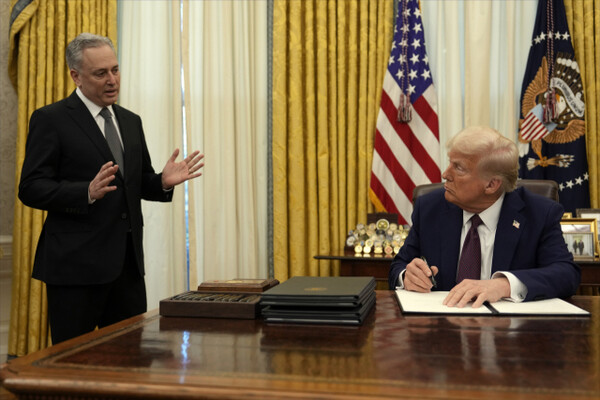
US President Donald Trump has signed an executive order to stockpile virtual currencies such as Bitcoin as national strategic assets. Accordingly, the US government plans to stockpile digital assets seized through criminal and civil forfeiture procedures instead of selling them.
David Sachs, the White House's AI and cryptocurrency czar, announced on social media X (formerly Twitter) that President Trump had signed the executive order. Sachs emphasized that this measure, which instructs the government to hold the confiscated Bitcoin instead of selling it, "does not cost the taxpayer a dime." He explained that the decision is a long-term measure to strategically utilize virtual currencies, as the government had previously lost more than $17 billion in asset value by hastily selling the Bitcoin it had held.
Under this executive order, the US government will not sell the Bitcoin it holds, but will maintain it as a store of value. The Secretaries of the Treasury and Commerce have been authorized to develop additional strategies to acquire more Bitcoin in a budget-neutral manner. However, it is clearly stipulated that this process should not impose any financial burden on US taxpayers. President Trump hinted at the possibility of including Ethereum, XRP, Solana, Cardano, and others in the virtual currency strategic stockpiling plan, in addition to Bitcoin.
President Trump declared two days ago that he would make America the "capital of the world of virtual currencies," revealing his intention to actively foster the virtual currency industry. This is in contrast to his previous negative stance on virtual currencies, which he had criticized as a "criminal industry full of fraud" as recently as 2021. However, he has now shifted his position to a pro-virtual currency policy during the current election cycle.
This executive order is interpreted as a strategic measure to counter China's challenge to financial hegemony with the digital yuan, as well as to address the US government's massive debt repayment. Some experts analyze that the move to treat virtual currencies as strategic assets like gold or oil could be linked to long-term changes in the US financial system.
Meanwhile, the Trump administration plans to hold a "Crypto Summit" attended by the CEOs of major virtual currency companies to discuss virtual currency regulations and utilization. It is expected that the next administration's virtual currency policy plans will be further concretized at this meeting. In particular, the Trump administration is showing a tendency to support the issuance of stablecoins, which are digital assets linked to the US dollar, in order to maintain the international influence of the US dollar.








